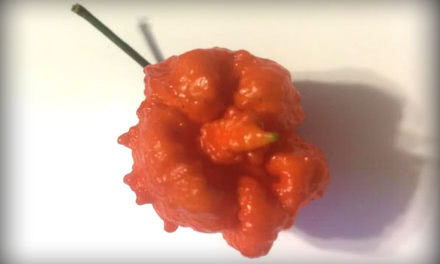Capsaicin, the component of chile peppers responsible for the heat and pungent odor, has been found to have many health benefits, including a remarkable range of medicinal qualities. In fact, capsaicin is already widely used as a topical ointment analgesic. Meanwhile, here are eight vital findings from clinical studies that look into the different health effects of hot chile pepper intake.
Total Mortality
New research by scientists at the University of Vermont’s Larner College of Medicine shows that a 13-percent total mortality–mainly deaths from stroke or heart disease–reduction is associated with hot chile peppers. Researchers attribute this to capsaicin’s supposed anti-obesity and antimicrobial properties. The relevant paper, “The Association of Hot Red Chili Pepper Consumption and Mortality: A Large Population-Based Cohort Study,” is published in a 2017 issue of the journal PLOS ONE.
Obesity
A study, whose findings are detailed in a paper entitled “Proteomic Analysis for Antiobesity Potential of Capsaicin on White Adipose Tissue in Rats Fed with a High Fat Diet” and published in a 2010 issue of the Journal of Proteome Research, offers evidence regarding the potential of hot chile peppers for fighting obesity. Capsaicin’s weight-loss-promoting property may have stemmed from its ability to shrink fat tissues, lower calorie intake, and reduce the levels of fat present in the blood.
A new study provides supporting evidence on dietary capsaicin’s anti-obesity properties. According to “Gut Microbiota Mediates the Protective Effects of Dietary Capsaicin against Chronic Low-Grade Inflammation and Associated Obesity Induced by High-Fat Diet,” a paper published in a 2017 issue of mBio, the American Society for Microbiology’s open-access journal, capsaicin interacts with intestinal microbiota. It increases the health-promoting gut bacteria, thereby aiding in weight loss.
Appetite Suppressant
Overweight people, who generally eschew spicy foods, might want to try–in reasonable and tolerable amounts, of course–putting a little bit of heat in their diet once in a while. This helps with weight management by curbing their appetite for salty, sweet, and fatty foods. This is according to the findings of the study, “The effects of hedonically acceptable red pepper doses on thermogenesis and appetite,” which appears in a 2011 issue of the journal, Physiology & Behavior. The appetite-suppressing effect has been observed only on people who do not normally like red pepper. Once an individual becomes accustomed to the spiciness, the effectiveness of chili pepper at curbing the appetite disappears.
Liver Damage
Liver damage may be stopped in its tracks through daily intake of capsaicin, according to research findings presented during the 2015 International Liver Congress. The study reveals that capsaicin can prevent further damage to the liver but it cannot minimize an already-established liver fibrosis, or the scarring that occurs when liver tissue is damaged. Read more here.
Colorectal Cancer
Research shows that capsaicin in chile peppers may inhibit the growth of gut tumors. In the study, “Ion channel TRPV1-dependent activation of PTP1B suppresses EGFR-associated intestinal tumorigenesis” published in a 2014 issue of the Journal of Clinical Investigation, it has been shown that dietary capsaicin effectively lowers the risk of developing colorectal tumors.
Breast Cancer
Colorectal tumors are not the only possible targets for growth inhibition by capsaicin. The paper, “Expression and functionality of TRPV1 in breast cancer cells,” details the promising results of a study on capsaicin’s ability to stop the growth of breast cancer or kill tumor cells. The study can be found in a 2016 issue of the journal, Breast Cancer: Targets and Therapy.
Blood Pressure
Long-term consumption of hot chile peppers may lower blood pressure, according to “Activation of TRPV1 by Dietary Capsaicin Improves Endothelium-Dependent Vasorelaxation and Prevents Hypertension,” a paper published in a 2010 issue of the journal, Cell Metabolism. The study demonstrates dietary capsaicin’s ability to relax blood vessels, thereby helping ease hypertension.
Hot chile peppers can be your ally to good health and well-being.






